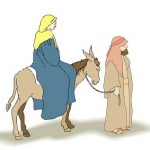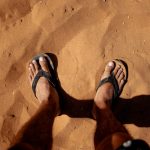As part of the Welcome to My World challenge, I am first answering this week’s question:
If there were no limitations, which country would you most like to vist?
I certainly would not like to visit the dusty Sahara desert. No! my choice is beautiful Switzerland.


Image by Vicki Hamilton from Pixabay
Habakkuk 1:9 NIrV
“All of them are ready to destroy others. Their huge armies advance like a wind out of the desert. They gather prisoners like sand.”
Shirl and I were once walking on the beach with my daughter and son-in-law who were with us on a short holiday. Suddenly, out of nowhere, a dreadful wind sprung up. We had to walk for quite a distance before reaching the safety of the car park. The sand got in our eyes, stung our cheeks, stuck to our lips and matted our hair. We were walking bent over, hanging onto each other, in an effort not to get blown over. It was a truly horrible experience.
- Can you remember a similar occasion? Perhaps at the beach, or somewhere else, when the wind suddenly sprung up? What do you remember about that time?
Port Elizabeth, or Gqeberha as it has been recently renamed, is known as The Windy City. It is common knowledge that you go to our beaches in the morning, because very often, by afternoon the wind usually springs up and the unpleasant beach sand begins to blown at you and on you.
Several alarming factors emerge from our key verse:
1. Chaldean purpose – An Ill Wind of Violence & Destruction.
- Can you recall a recent incident where the initial peaceful actions of those involved ended up in violence and destruction? What actually happened?
The above version of Habakkuk 1:9 speaks of the Chaldean desire to ‘destroy’. Yet another version uses the word ‘oppress’. But most versions state they came for ‘violence’.
One thing is certain the objective of the Chaldeans was to get all that they could through violent means.
In the same way a major area of Judah’s sin was also that of ‘violence’ (Habakkuk 1:3-4). Moreover violence would be her punishment.
2. Facial Evidence
“The set of their faces is forwards;” (Verse 9 ASV)
- Do you find it difficult to hide your feelings?
- How do others detect when you are angry?
It is easy to detect when someone is fiercely angry, their faces show it. The faces of the attacking Chaldeans would appear so stern and fierce. Their very looks would cause the Judaens to become fearful and their courage to wilt in absolute terror.
What ill wind has hit your life? Jesus stills all life's storms. Share on X
3. An Ill Wind from the Desert
As plants shrivel up and wither away, when blasted by a hot desert wind, so too the Judaens would wilt before the impending attack of the Chaldean army.
Our text states “Their huge armies advance like a wind out of the desert”. Mention of the “desert wind” is reference to an ill wind – an unpleasant wind. We have a saying, “it’s an ill wind that blows nobody any good.” The Chaldeans were an ill wind that would certainly do Judah no good.
- Can you think of someone you might describe as an ‘ill wind’? (Don’t mention names if you’re in a group!) What makes you feel that way?
We all probably know someone whom we could label an ‘ill wind’. Just to see them coming prompts one to turn and go in the opposite direction, to cross over to the other side of the street, or to take refuge in the nearest building. They are usually gossipers and trouble makers. Yet they are surely nothing like the Chaldeans! And perhaps God will use them in our lives to teach us a lesson.
- Is there perhaps something the Lord would have you do to help such an ‘ill wind’ in your life?
4. Defenceless captives
The picture created in this verse is of just how easily the Chaldeans would take vast numbers of prisoners. In the same way as one might stoop down and scoop up a handful of sand they would scoop up numerous captives. How helpless these poor people must have been.
- What causes you to feel helpless today? Leave your answer in a comment below
There are folk who through circumstances have become captive to someone or something.
- Do you know of someone who falls into that category? And can you think of a way you can help them?
Ask the Lord to reveal what, if anything, you can do to set them free.
Think about this:
Jesus assures us through the words of the prophet Isaiah that:
“The Spirit of the Lord God is upon me,
Because the Lord has anointed me
To bring good news to the afflicted;
He has sent me to bind up the brokenhearted,
To proclaim liberty to captives
And freedom to prisoners.”Isaiah 61:1 NASB
P.S. If you haven’t yet read the background to the prophecy, please do. It will benefit you throughout this series of studies.













